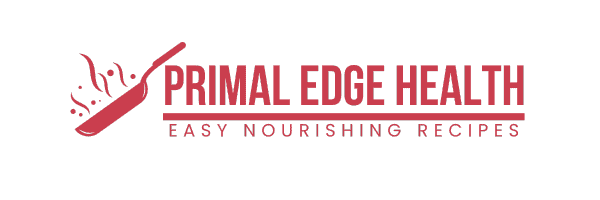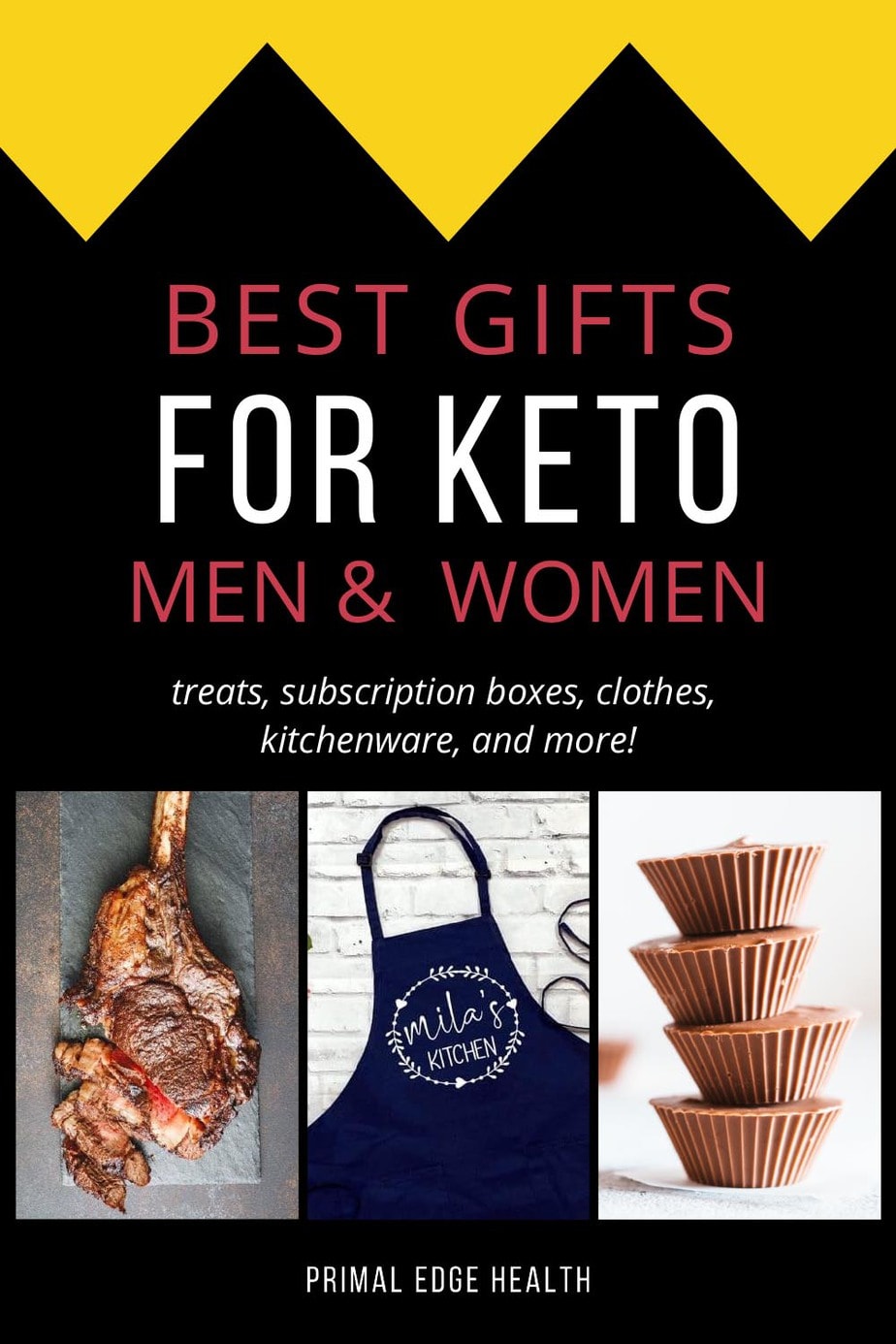Optimal Protein Intake for a Ketogenic Diet
Primal Edge Health participates in the Amazon Services LLC Associates Program and other affiliate programs and therefore, may collect a share of sales or other compensation from the links on this page. This comes at no additional cost to you, and all the prices and availability are accurate at the time of publishing.
When embarking on a keto diet for health or fat loss, finding the optimum protein intake can be very confusing for many beginners.
For smooth adaptation in the transition to a ketogenic metabolism I typically guide people using a caloric spread of around 70-80% fat, 15-25% protein, and 5% carbohydrate from green fibrous vegetables – but this ratio varies for every individual and using percentages is confusing and misleading in many cases. The best way to look at macronutrients is not in percentage
The slew of bloggers and gurus spouting so much conflicting information leads many into a mental stalemate about how much protein they should be eating.
This article lays out the metrics I most commonly
Table of Contents (click to view)
Myth: “Too much” protein turns immediately into sugar
I almost always recommend people increase their intake of fish and seafoods in order to get the vital nutrient DHA into their central nervous system and mitochondrial membranes. We see amazing results when people opt for more fish and less red meat, which I also love, but land mammals are not nearly as nutrient dense as seafoods with their incredible levels of DHA, EPA, selenium, and iodine. Sometimes this means they will be eating more protein than they believe will allow them to be “ketogenic”, this protein-phobia can be counterproductive, which leads me to the most obnoxious myth about keto diets.
Protein-phobia can be just as much of a problem as overdoing protein. Essential amino acids, like essential fatty acids, cannot be synthesized by the body and must come from dietary sources. A common misconception about ketogenic diets, a myth oft repeated, is that any excess protein “turns into sugar” right away. This is a very hyperbolic misinterpretation of a the process through which the body can convert some amino acids into glucose that is not backed by research. While some amino acids in protein can be converted into glucose, gluconeogenesis is a highly regulated physiological process and is much more complicated than catchy fear mongering statements like “your body turns excess protein into sugar”1.
While there are anecdotal stories and n=1 which suggest that certain individuals have blood sugar spikes from excessive protein which may lower blood ketones temporarily, it is very upsetting when my clients are misled into believing that an increase in their protein intake, which will increase satiety during fat loss, will somehow magically turn into Frosted Flakes in their stomach and make them gain body fat! Protein is NOT sugar, and even if increased protein intake (done for specific purposes such as raising DHA/EPA levels with fish) temporarily lowers blood ketones, this is not going to negatively affect fat loss or health!2. There is a difference between a medical ketogenic diet where ketones must be constantly high to prevent seizures, and a ketogenic diet in the general population where health and fat loss are the goal. Higher blood ketones DO NOT equal more fat loss, and though there are MANY benefits to elevated blood ketones, those embarking on a ketogenic diet do not need to fear protein – once adapted, especially in more active or resistance training individuals, protein at 1g/lb of lean body mass will not interfere with long term ketosis or weight loss.
Why blood sugar TEMPORARILY increases from a protein (or any large solid) meal
Eating any solid foods raises glucagon due to alpha cells in the stomach – this raises glucose a bit and naturally, insulin release follows – this TEMPORARILY slows production of ketones3. Protein isn’t converted into glucose immediately – if you are obsessively pricking yourself all day thinking constant elevated blood ketones somehow magically leads to weight loss you are wasting time, energy, and ketone/glucose strips. If you’re on a medical ketogenic diet for epilepsy, then this is very useful…if not, then why waste so much energy and money? If you have been duped into believing that having blood sugar over 80 after a meal means you will never efficiently burn fat and make ketones, you should look for some sources of evidence for this claim (hint- there is NO evidence for this). Of course keeping blood sugar low is great for health, but hyperfocus on numbers in the glucometer is not likely benefitting non-diabetics on a ketogenic diet.
When I work with clients on fat loss and body composition goals I sometimes guide them into a low carbohydrate ketogenic diet – this increases satiety and decreases hunger and favors a hormonal environment that is conducive to fat loss and lean muscle preservation. Protein intake is a tool within this context that can aid in satiety while calories are decreases to promote fat loss. When first embarking on a ketogenic diet I recommend keeping a moderate protein intake. This ranges, depending on the variables I will discuss in this article, from 1-2.5g/kg of lean body mass (.5-.8g/lb) and, in some cases, a bit more. After a period of adaptation and entrainment of the body to a fat based metabolism, protein intake can be adjusted according to preference and goals.
[kad_youtube url=”https://www.youtube.com/watch?v=1NbIDuVyYYc”]
Variable for Optimal Protein Intake on a Ketogenic Diet
1. Personal Goals
- Losing Body Fat
Protein is an important tool in the toolbox of macronutrient partitioning (the breakdown of calories from protein, fat, and carbohydrates as a percentage of total daily calories in the diet).
If the goal is to lose body fat, one must maintain a calorie deficit in order to tap into fat stores for energy. One method of making such a deficit sustainable and even enjoyable is a ketogenic diet. A properly formulated keto diet will include enough protein and fibrous vegetables to fill the stomach and suppress hunger while keeping blood sugar far more stable than a carbohydrate driven diet (which can work just as well for fat loss). When in a deficit, protein is a powerful tool for increasing satiety – one way to make a deficit bearable is to increase protein while dropping fats, creating the necessary energy balance to cause a need to burn body fat throughout the day. Increased protein is also known to normalize insulin levels in calorie restricted diets in obese hyperinsulinemic individuals4.
For weight loss, protein levels may vary anywhere between 1.5-2.5 g/kg (.5-1g/lb) of LEAN BODY MASS (LBM), yes this is a wide range and one must experiment to find where their optimal intake is.. Individuals that are more physically active will likely desire more than sedentary people, and men often desire more than women, but there is no dire need to eat less than 1.5g/kg LBM for most people using a keto diet to get lean. The lower end of the ketogenic spectrum may not results in muscle loss because ketosis is muscle sparing and protects lean muscle from catabolism5, but it is not necessary to severely restrict protein like epileptic patients on a medical ketogenic diet. If you are highly active and enjoy eating protein, the higher end of the spectrum may be ideal for you. If you prefer less protein, then eat less!
- Ketogenic Diet for Medical Purposes
If the goal is to maintain a medical ketogenic diet and elevated blood ketones constantly while minimizing IGF-1 and MTOR as much as possible, then protein intake will sway to the lower end of the spectrum. Keeping IGF-1 and MTOR low while elevating AMPK is a very valuable health strategy which can be useful even for those not suffering serious illness. Deep ketosis is highly beneficial to epilepsy patients due to the neuroprotective effects on the brain6. Ketogenic diets are now being shown to be effective as a metabolic therapy for cancer patients as well7. If using ketosis as a metabolic therapy for these very serious diseases it is important to maintain protein levels low in order to elevate blood ketones and keep blood sugar levels very low. For serious conditions, protein on the lower end of the spectrum such as 1g/kg of lean body mass may be necessary. This does not mean that those eating higher protein than this will not reap any of the benefits of ketosis, but a keto diet used as metabolic therapy for serious disease is much more restrictive and difficult to maintain than a ketogenic diet for the average individual. This is not a medical ketogenic diet resource, if you’re doing a keto diet for medical reasons consult with your health care professional.
2. Dietary history
The history of the individual is important when choosing protein intake – many people with poor history of diet have never gotten adequate protein in their diet, this would make it difficult for them to adjust to an intake on the higher end of the ketogenic spectrum. When working with clients who are well adapted to ketosis and have stable energy levels throughout the day with low hunger, I often increase their protein a bit and decrease fats to create more satiety and a slightly deeper calorie deficit to facilitate burning more body fat. People who have never “dieted” before and have blood sugar dysregulation may be better off with EITHER lower or higher protein to start out, depending on their preference and other lifestyle and health history factors. Again, there is no cookie cutter number that all must hit for protein intake.
3. Activity level
More active individuals will likely have much faster metabolism and thus be much more hungry – highly active people will of course desire more protein in their diet while sedentary individuals will have less need for a substrate for gluconeogenesis because they will have a slower metabolism and utilize less glucose for explosive movements and activity. Paradoxically, resistance training is muscle sparing – this means it lowers protein requirements BUT the less calories we eat the more protein we will require in order to spare lean tissue, so for active individuals looking to get lean more protein is both desired and probably required especially if in a significant calorie deficit. Ketosis is muscle sparing, but we still must create some glucose for the brain and muscle glycogen, so more training = more protein. There is much evidence that higher protein intake during dieting can improve results, so it can be better to err on the higher end.
Sedentary individuals may only want 1-1.5g/kg (.5-.7g/lb of their lean body mass while more active people may opt for 1.5-2.5g/kg (.7-1g/lb) of their LBM.
4. Personal preference
This is an often forgotten factor by many individuals and coaches, and is one of the most important. If you enjoy eating protein, if you can’t get enough fresh salmon or grass fed beef (I always recommend seafoods over land mammals due to the importance of DHA and iodine in the diet), then perhaps you should sway towards the higher end of the ketogenic spectrum for protein!
Personal preference is a huge factor in long term adherence to a diet – you must enjoy the diet you choose and adhere to it long term in order to get results. If you love protein, then stick to the higher end of 1.8-2.2 g/kg of your lean body mass (or a bit more if you are highly active and prefer higher protein, but realize that there is a limit where you will begin oxidizing protein for energy and may upregulate those pathways).
References
1. [https://www.ncbi.nlm.nih.gov/pubmed/18561209]↩ 2. [http://diabetes.diabetesjournals.org/content/62/5/1435.full]↩ 3. [http://europepmc.org/backend/ptpmcrender.fcgi?accid=PMC2109690&blobtype=pdf]↩ 4. [http://europepmc.org/backend/ptpmcrender.fcgi?accid=PMC2109690&blobtype=pdf]↩ 5. [https://www.ncbi.nlm.nih.gov/pubmed/10578211]↩ 6. [https://www.ncbi.nlm.nih.gov/pmc/articles/PMC1373635/]↩ 7. [https://www.ncbi.nlm.nih.gov/pmc/articles/PMC2898565/]↩ 8. [https://www.sciencedirect.com/science/article/pii/S2213231714000925]↩






Thank you for all the work and for the wholistic(!) approach which I also see in your videos, I enjoy them greatly. Hope you can have a moment to read this and answer.
Have been on the ketogenic diet for 4 months now. Feeling so much better, relaxed, energetic, and my relationship with food has changed entirely. I lost 25kg, but I still want to lose about 30kg and I didn’t lose 1 gram or any fat percentages for a month now. Only weigh myself once a month. I Started at 150kg. Very active and overall healthy, so I guess 1.5g of protein is enough, maybe a little more if I am still hungry. So how much fat? Automatically do 1.5-2 g fat per gram of protein.? or lower it to get the fat from my stored fat? Is there a minimum? Would like to get out of this plateau. I do not eat any dairy or “grey area” sweetners or any processed foods really – so doing a very basic clean keto, almost carnivore. Fatty meats, eggs, very few veg.
Try dropping the fat down slowly to be equal with your protein g for g. 1.5-2 grams of fat per protein is best for adapting, but drop it down to get better fat loss results. Hope this helps!
Is the .5 to .7 grams per pound of LBM for the day or per meal. Thanks for your help sure appreciate your help.
per day – for example if your LMB is 200 pounds, aim for 100-160 grams protein a day. Weigh raw weight. 4 ounces of meat is not 113 g of protein, probably closer to 25-30 g.
Hi Tristan,
I was diagnosed with pre diabetes and the low fat, low carb diet my physician prescribed after 3 months wasn’t working for me. I still felt horrible with dizziness, etc.
Switched myself to keto about 2 weeks ago and I feel wonderful.
My question is… For someone that is prediabetic, do you know if I need to stay in ketosis constantly now or do you think going in and out like you mentioned in your video will be okay as long as I stay relatively low carb?
Just wondering what information you have on keto and diabetes long term.
Thanks!
Julia
Glad you hear Keto is helping improve your quality of life. Tristan and I prefer to maintain the state of ketosis long-term. We’ve been following a keto diet for about 5 years now. But you’ll have to answer this question for yourself, feel the difference between various levels of carbs – when do you feel best? What works for your lifestyle and goals?
How do you Know your lean body mass? I Have a scale that provide a number but seems inacurate. It’s one that mesures from the lower parts of the body. is this reliable or is there a formula? Thanks for all your great work!
I agree, the scales don’t seem very actuate. Tristan is doing a live Instagram hangout RIGHT NOW and is discussing this exact question. Hope you can give a listen! – Jessica
I will tell you that I am one of “those” people whose blood sugar spikes when I am over my “target” protein intake (roughly 85-95g/day). I am at a low level of body fat (~10%) and because of that, I can tell after just a day or so if my BF% has increased. Every time I increase my protein (everything else stays the same), my BF% goes up by 0.5-1%. Once I return to optimal intake, it drops off in the same time. I guess my body is just very sensitive to blood sugar variations? Ideas?
Come on our next hang out and ask your questions! Sign up for our newsletter, we do our best to send out notifications ahead of time.
I have been reading all the comments and answers on here, I think I have answered my question but I’m still a bit confused.
I’m on day 12 of keto and really struggling on my protein (I struggle keeping it low). I used Maria Emmerich’s keto calculator and for faster weight loss gives me 12 net carbs which is no problem for me, 70grams of protein and 141 of fat. (Gradual weight loss 89grams protein/149grams of fat)
I’m 5’8.5″ 164lb.
Should protein be significantly lower then fat? I never hit that fat in my diet, I struggle big time. The most fat I have got to is 125grams. I’m about to just sit down and drink olive oil (okay not really yuck), why is it so hard to get fat in????
My calories are always in the 1300-1400 range. Not by choice just what happens with low protein and enough fat maybe.
I do workout 3-4 days a week (mostly Beachbody workouts/Shaun T/21 Day fix/ Insanity).
Thanks a lot and I plan on looking through your site now 🙂
Amy, if you are interested in our coaching, please send an email via the contact form in the coaching page – https://www.primaledgehealth.com/coaching/. Apologies, but we do not give our general macro advice without an in depth conversation first.